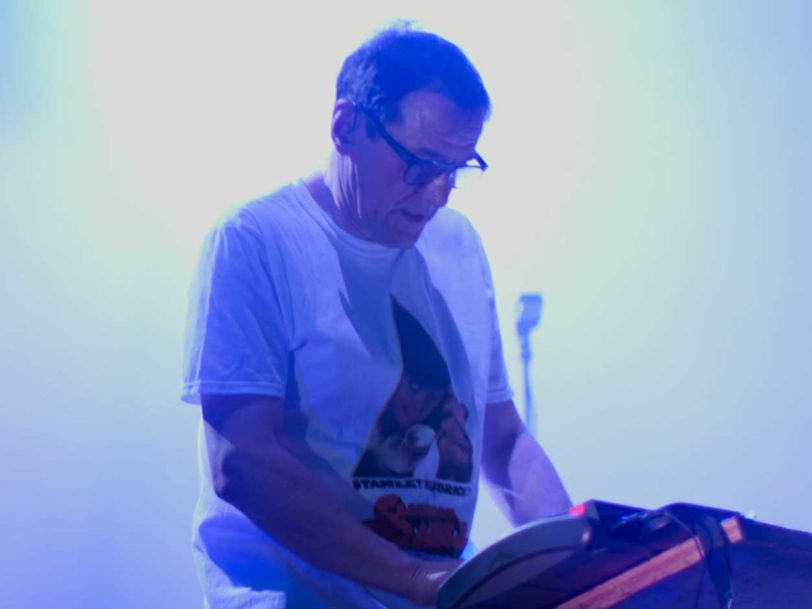Has there ever been a more aptly named live release? Sure, Live At Leeds, Live At The Apollo, Live/Dead – they all get straight to the point, but education entertainment recreation pretty much nails everything it’s about. Filmed at London’s Alexandra Palace on 9 November 2018, New Order’s only UK gig of that year, it finds the Manchester group serving a master class in their post-punk fusion of rock and dance music, resulting in a euphoria-inducing live document that’s more than just a way to pass the time.
“There was a fantastic atmosphere at the Alexandra Palace gig,” New Order drummer Stephen Morris tells Dig! “The audience – who are a great part of the vibe of a gig – were great, and for such a large crowd it didn’t actually feel that daunting.”
Listen to education entertainment recreation here.
“It’s good to surprise people”
That, four decades after emerging from the wreckage of Joy Division, New Order can still pack out a 10,000-seater venue such as the iconic Ally Pally is testament to the durability of their songs. With an eye on the future of rock, pop and electronic music, the group fashioned a run of classic albums such as Power, Corruption & Lies, Technique and Low-life, plus a run of unimpeachable 12” singles – among them Blue Monday, Thieves Like Us and True Faith – that sound as innovative today as they did when they stormed the UK charts in the mid-80s.
“I really have no idea – it can’t be just our good looks, can it?” Morris jokes of New Order’s continued cross-generational appeal. “Perhaps it’s the music. That would make the most sense. I guess the majority of people come to New Order gigs to hear New Order’s music played in our ‘inimitable style’.”




